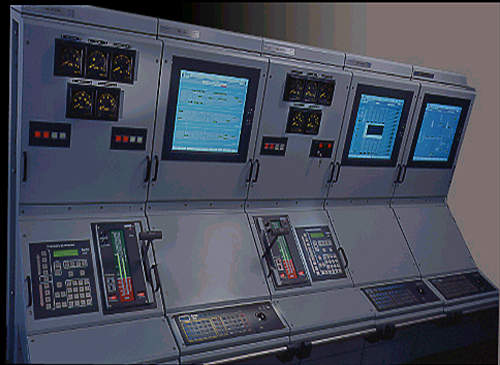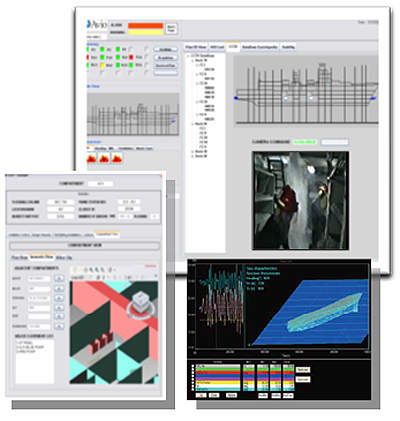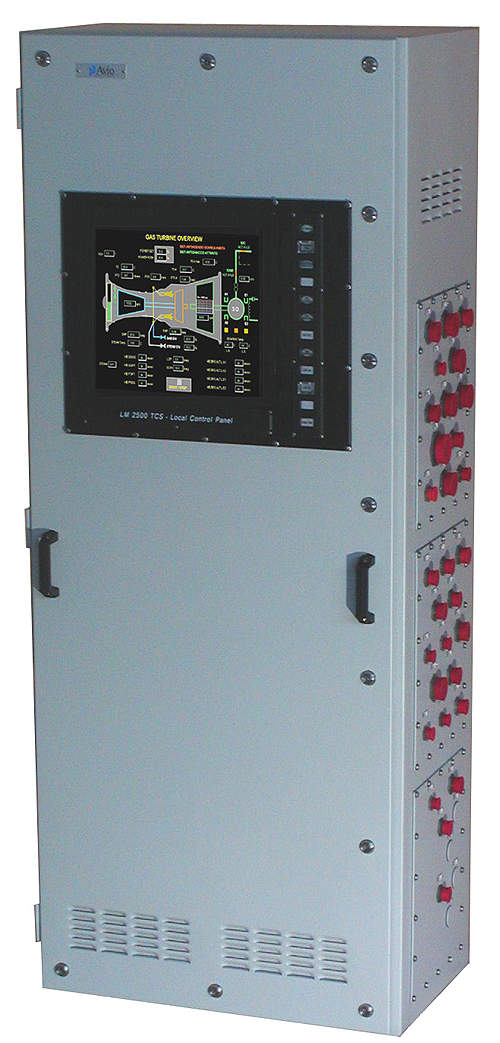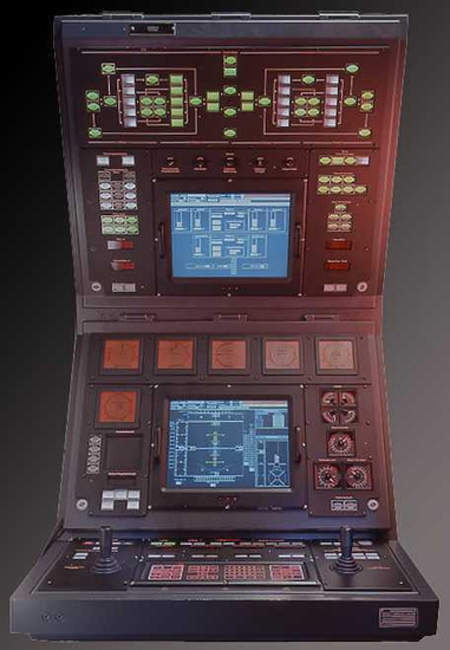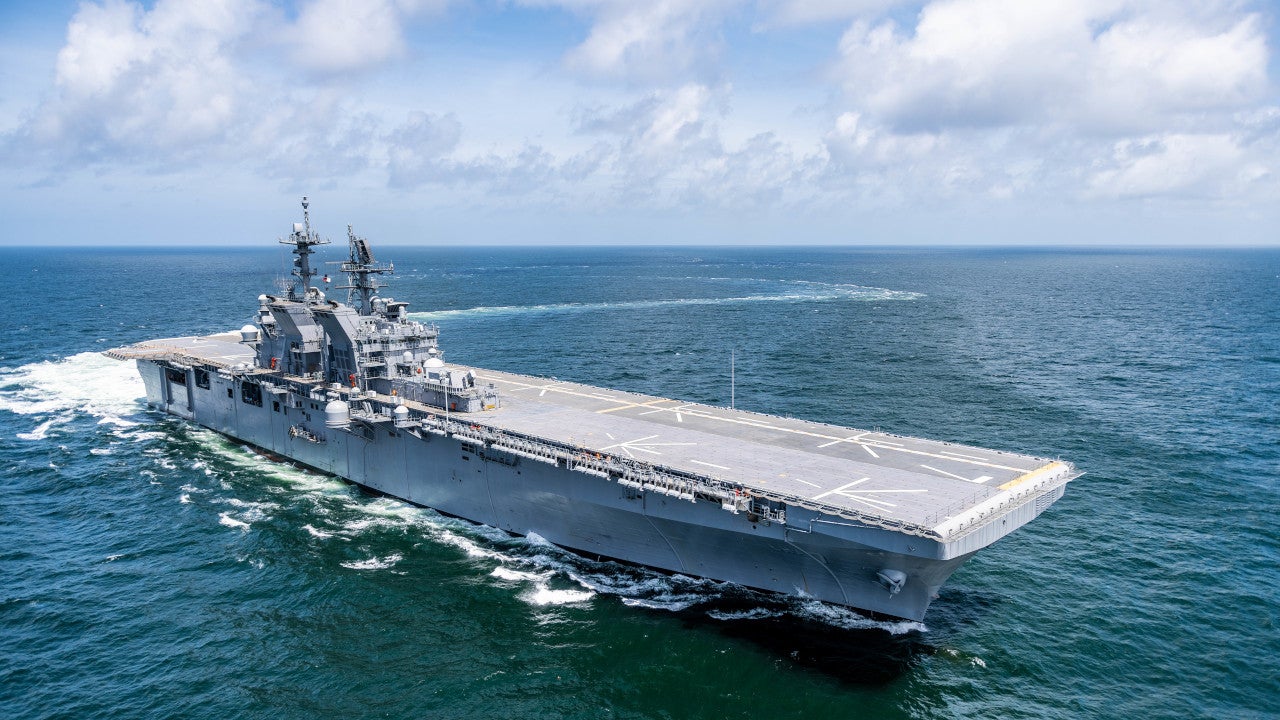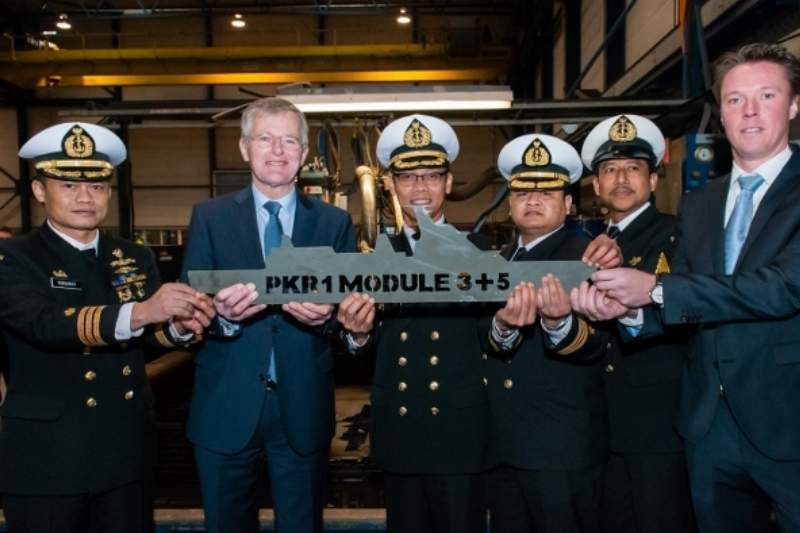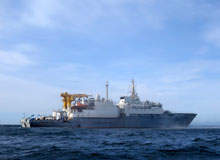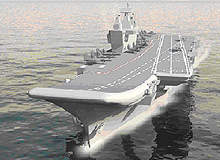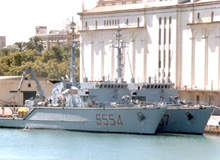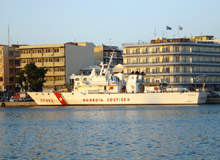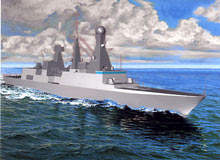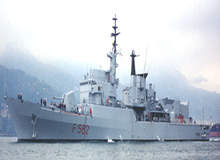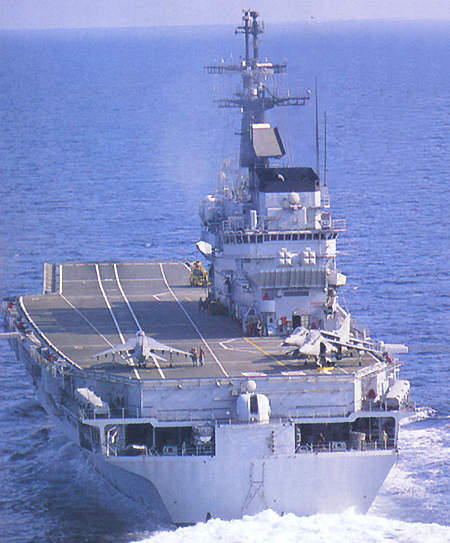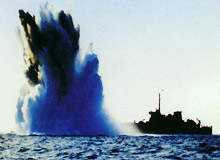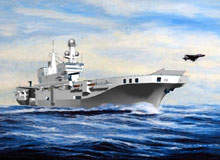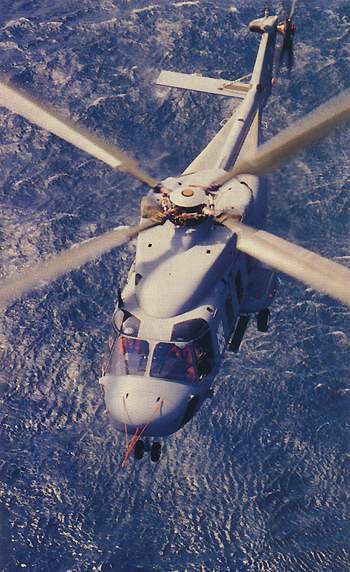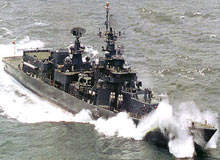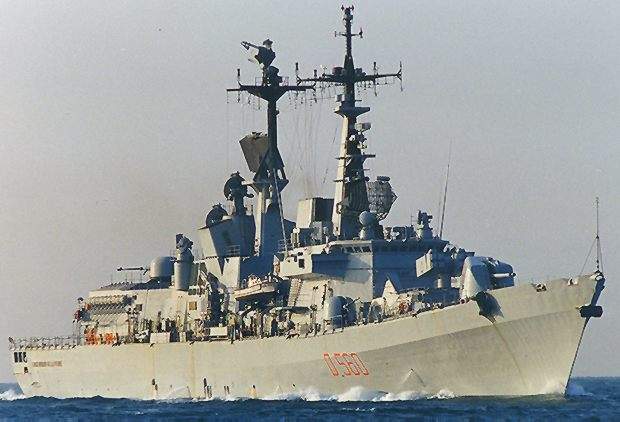Avio’s interest in naval activities is deeply rooted in the past. Since the beginning of the last century, the attention to marine propulsion has materialised in the study and implementation of engines able to reply to increasingly complex needs at the cutting edge of technology. Today, turbine modules for naval propulsion and naval automation systems for integrated platform management constitute Avio’s excellence in the marine sector. With this expertise, Avio is able to meet the needs of propulsion and automation in the most demanding marine applications.
Automation of naval systems
From the early successes of the 1970s, the electronics and electrical systems division has maintained a top position in the development and supply of supervision and control systems, producing hundreds of merchant and military applications worldwide.
Products developed by Avio cover all automation functions of the ship platform for navigation, safety and stability, offering a full range of integrated tools for the conduct of ships and submarines, including systems for training and maintenance:
Integrated platform management system
Master+ is the brand name of Avio’s modular integrated platform management system (IPMS) for military applications. The Master+ modules, connected through a redundant ship bus in a scaled architecture, afford a true integration of the ship’s platform systems achieved by providing state-of-the-art control and monitoring technology. Product choices, such as the use of COTS electronic modules housed in distributed MIL rugged Remote Terminal Units (RTUs), and the adoption of international standards minimise the system’s through-life cost.
The ease and versatility of the Master+ operational modes enable a reduced crew to steer and manage the vessel quickly, efficiently and safely.
Our modules include:
- AMS: alarm monitoring system
- PROP: propulsion and manoeuvring
- APMS: automatic power management System
- ACS: auxiliary control system
- BDCS: battle damage control system
- OBTS: on-board training system
- PLS: personnel locating system
- EHMS: equipment health monitoring system
- CCTV: closed circuit TV
- ISS: integrated stability system
Surface vessels autopilot: steering control autopilot (SCA)
The steering control autopilot is an open multiprocessor system, based on distributed control and database, whose comprehensive modular and multi-level architecture is able to fit any kind of ship. The system is able to integrate and interface, at the best level, on-board systems and sensors in order to monitor and control the machinery for precise and safe conning of the ship, even under heavy sea-state conditions.
Submarine autopilot: steering and diving control system (SDCS)
The steering and diving control system is a computer-based system designed to meet the requirements for the centralisation of control and surveillance of submarine course and depth.
The major benefits of this automatic control are rapid and precise control combined with increased safety that can be conferred by the adoption of modern electronics.
As a natural evolution of its expertise in the field of submarines, Avio has developed a new generation of submarine Autopilots, namely GAUDI (Guidance Automation Unit Distributed Intelligence), optimised to increase availability of the system, reducing space and power consumption constraints.
Propulsion systems
Avio played a major role in promoting the great technological revolution of the twentieth century in the field of marine propulsion. Starting from 1903, Fiat’s laboratories and research establishments began the design and production of marine engines.
Avio has developed its own know-how with aeroderivative gas turbine "state of the art" technologies for marine applications and is currently General Electric’s partner and supplier for Marine Systems, also cooperating in the development and production of the LM2500 gas turbine (with the new LM2500+G4) for naval applications.
Avio is supplier of the gas turbine propulsion package for the 27-frigate FREMM programme (Italy-France). The LM2500+G4 propulsion system is installed on each frigate.
LM2500+G4 aeroderivative turbines
The LM2500+G4 is the last-generation in the LM family of aeroderivative turbines, produced for marine and industrial applications. The models produced to date have accumulated more than 40 million hours of service, with an average reliability of 99.6%.
The LM2500 gas turbine has benefited over the years with continued improvements. Today, the LM2500+G4 offers an installed capacity of 32 MW, a new design and development of the turbine module with important advantages:
- Significant weight reduction
- Noise reduction
- Development of a new turbine control system
Turbine control system (TCS)
The turbine control system, developed by Avio and fully qualified by General Electric, is a microprocessor-based system, fully integrated in the IPMS, and designed to perform control and monitoring of LM2500’s family of gas turbines and auxiliary systems for marine propulsion. Avio’s TCS can also be integrated with third-party systems.


